Colloidal Oatmeal: 5 Benefits & 6 Usage Tips For Healthier Skin
Discover colloidal oatmeal's secret to smooth, happy and hydrated skin.
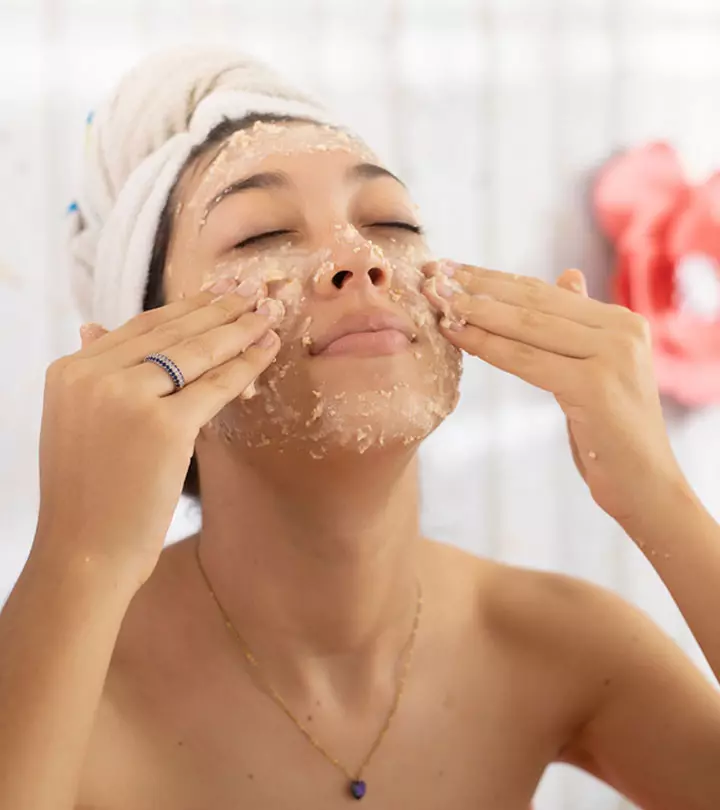
Image: Shutterstock
Colloidal oatmeal can do wonders for your skin. It is a time-tested home remedy that can help solve several skin issues. You may use colloidal oatmeal for skin dryness, irritation, or flakiness.

But how does colloidal oatmeal help? How do you use it on your skin? This article deals with all your queries and discusses the benefits of oatmeal on the skin. Keep reading to know more.
In This Article
What Is Colloidal Oatmeal?
Colloidal oatmeal is made by grinding and processing whole oat grains. It contains protein, fats, and other nutrients and works as an excellent emollient (skin softener) (1), (2), (3)
Colloidal oatmeal functions as a moisturizer, cleanser, skin soother, and protective anti-inflammatory agent. It contains ingredients with both moisturizing and antioxidant properties that help fight free radicals and delay the formation of wrinkles.
It is available in multiple forms, including creams, powders, and gels. It is typically found in bath and shower products, shampoos, cleansers, ointments, and moisturizers.
Colloidal oatmeal is replete with important nutrients. We will explore the same in the following section.
Key Takeaways
- Made by grinding and processing whole oatmeal, colloidal oatmeal is a popular treatment for common skin ailments like skin dryness, itch, or any irritation.
- With its moisturizing and antioxidant properties, it helps maintain and strengthen your skin barrier while delaying the signs of aging.
- Creams, powders, moisturizers, gels, ointments, or bath and shower products, colloidal oatmeal is a common ingredient in many dermatologist-approved skin care products.
- Masks, cleansers, exfoliants, or an oatmeal bath are common ways to include colloidal oatmeal in your skincare routine.
Nutrients In Colloidal Oatmeal
Colloidal oatmeal is obtained by grinding the whole oat seeds. It contains the following nutrients:
- 60% polysaccharides
- 10 to 18% proteins (glutamic acid and aspartic acid, which contribute to the oatmeal’s water affinity)
- 5% lipids (phospholipids and sterols)
- Starches, which are hydrophilic in nature and can absorb huge quantities of water
- Enzymes, flavonoids, vitamins, and phenolic acids
Let us now dive into the benefits of colloidal oatmeal for the skin.
Skin Benefits Of Colloidal Oatmeal
While there are many known benefits of oatmeal, does grinding oats make much difference? Find out below.
- Prevents Transepidermal Water Loss
Natural colloidal oatmeal creates a film on top of the skin surface. Consistent use of oatmeal reduces the amount of lost water in the skin and boosts overall skin hydration. However, more research is warranted to further understand this mechanism. The starches in colloidal oatmeal may contribute to its water-binding properties (3).
- Helps Strengthen Skin Barrier Function
Our skin comprises the skin barrier that prevents water loss and protects the skin against various environmental aggressors.
However, several internal and external factors, like weather, UV radiation, or genes may damage this skin layer. Colloidal oatmeal may strengthen this skin barrier.
- Helps Fight Skin Inflammation
The polyphenols in oatmeal may possess anti-inflammatory properties (4). They may also protect the skin from harmful UV radiation. That said, you cannot use oatmeal as sunscreen.
- May Soothe Irritated Skin
Colloidal oatmeal adds moisture to the skin and works as an emollient. It helps keep the skin soft and prevents irritation. Its anti-inflammatory properties may also offer relief to irritated skin and prevent redness and inflammation. Colloidal oatmeal is also believed to benefit those with eczema because of its fiber and cellulose content. However, information is less in this regard. Consult your doctor for more information.
 Quick Tip
Quick Tip- May Act As An Effective Cleanser
While mostly present in thicker moisturizing creams, balms, and lotions, colloidal oatmeal naturally creates foam and works as an effective cleansing ingredient.
Are you wondering how you can use colloidal oatmeal in your skin care routine? Find out in the next section.
Ways To Use Colloidal Oatmeal For Skin
The saponins in colloidal oatmeal give it its remarkable cleansing properties (3). It can be used in skin care as:
- Moisturizer
- Cleanser
- Bath soak
- Scalp relief
- Face mask
- Exfoliant
Here is how you can use colloidal oatmeal for your skin:
- As An Exfoliant
Colloidal oatmeal’s grainy texture makes it an excellent scrub to clean skin and remove dead skin cells. It gently exfoliates your skin and adds enough moisture.
- During The Bath
Add a few cups of colloidal oatmeal to your bathtub to help soothe irritation. Soak yourself in the tub with colloidal oatmeal for about 15-20 minutes.
Arsy, a blogger who writes about food and beauty, loves oatmeal baths. She shares, “In my experience, oatmeal baths and masks have mostly been used to help alleviate pain. From a rash, sunburn or eczema (i).”
- To Treat An Itchy Scalp
Colloidal oatmeal is also recommended for those with an itchy scalp. Its anti-inflammatory properties can relieve irritation:
- Take 1/3 cup of colloidal oatmeal and gently mix it with a pitcher of warm water.
- Wash your hair thoroughly and rinse completely.
- Gently massage the colloidal oatmeal mixture into your hair and scalp.
- Cover your head with a shower cap for 15-20 minutes.
- Rinse properly and air dry your hair.
- In Your Moisturizer
Moisturizers with colloidal oatmeal can be used two to three times a day. The oatmeal can also soothe your skin and offer added nourishment.
- As DIY Colloidal Oatmeal Soap
Those with sensitive skin can make their own DIY soap with oats to treat their skin. The oatmeal soap would help fight skin inflammation and redness. It also can help clear away the dirt and excess oils.
You would need a few basic, natural, or organic soap bars. Here is what you need to do:
- Take any two organic soap bars and grate them into a pot.
- Add 1 to 2 oz of chamomile tea and keep stirring to avoid burning or sticking.
- Turn the heat off once the mixture melts completely.
- Add 4 tablespoons of colloidal oatmeal and 2 tablespoons of regular oatmeal to this mixture.
- You can also add other healthy ingredients of your choice, like honey, essential oils, or herbs.
- Pour the mixture into muffin tins and let it cool for 24 hours before removing it from the mold.
- Let the soap bars sit for a few days and dry completely.
 Quick Tip
Quick TipWhile colloidal oatmeal has many benefits, it also may have some side effects. Read on to know.
Side Effects Of Colloidal Oatmeal
Colloidal oatmeal is generally considered safe for most people. There have been zero or minimal allergic reactions reported by 445,820 consumers of colloidal-oatmeal-containing personal care products within three years (1).
In another study conducted in a large group of adults, only 1% of participants reported low-level skin irritation after using a colloidal oatmeal patch for 24 hours (1).
However, it is recommended that you don’t use colloidal oatmeal if you have an oat allergy. Also, if you experience severe symptoms, such as a rash, burning sensation, or stinging, discontinue use and discuss the same with your healthcare provider.
Apart from the side effects of colloidal oatmeal, you also need to be aware of the necessary precautions you need to take before using it. Read about them in the next section.
Precautions You Should Take When Using Colloidal Oatmeal
It is always safe to check the ingredients thoroughly before beginning your treatment with products containing colloidal oats. Avoid products with any ingredient you are specifically allergic to.
If you have oily or acne-prone skin, look for a non-comedogenic product containing colloidal oatmeal.
In A Nutshell
Colloidal oatmeal is a nutrient-dense ingredient obtained from grinding whole oats and is commonly used to treat various skin issues. The benefits of incorporating colloidal oatmeal into your skincare routine include reducing inflammation, keeping the skin hydrated, and strengthening the skin barrier against environmental pollutants. You can use colloidal oatmeal for your skin as a moisturizer, cleanser, face mask, or exfoliant. While colloidal oatmeal is safe for use, some people may experience a mild allergic reaction. Avoid using products containing colloidal oatmeal if you are allergic to oats.
Colloidal oatmeal is a nutrient-dense ingredient obtained from grinding whole oats and is commonly used to treat various skin issues. The benefits of incorporating colloidal oatmeal into your skincare routine include reducing inflammation, keeping the skin hydrated, and strengthening the skin barrier against environmental pollutants. You can use colloidal oatmeal for your skin as a moisturizer, cleanser, face mask, or exfoliant. While colloidal oatmeal is safe for use, some people may experience a mild allergic reaction. Avoid using products containing colloidal oatmeal if you are allergic to oats.
Frequently Asked Questions
Does colloidal oatmeal brighten skin?
Colloidal oatmeal unclogs pores and removes dead skin cells to give your skin a brighter appearance.
What is the difference between oatmeal and colloidal oatmeal?
The main difference between these two ingredients is that regular oatmeal is dry while colloidal oatmeal has a liquid base.
Does colloidal oatmeal tighten skin?
Yes, colloidal oatmeal may tighten the skin and reduce enlarged pores.
Can you leave colloidal oatmeal on your face overnight?
Yes, you can leave colloidal oatmeal on your face overnight, but it can make you feel uncomfortable when it dries up. Thus, it is recommended to wash it off after 15 minutes to an hour.
Is colloidal oatmeal good for rosacea?
Yes, colloidal oatmeal can be used to manage rosacea due to its moisturizing and skin-nourishing properties.
Is colloidal oatmeal good for seborrheic dermatitis?
Yes, colloidal oatmeal may be used to treat seborrheic dermatitis due to its moisturizing and soothing properties.
Is colloidal oatmeal gluten-free?
Yes. Colloidal oatmeal is generally considered gluten-free and safe for use by people with celiac disease or gluten intolerance
Does colloidal oatmeal expire?
Yes. Colloidal oatmeal can last up to two years when stored in a cool, dark, and dry place. Discard it if you see mold or if it changes in scent, color, or texture.
Can colloidal oatmeal be used for hives?
Colloidal oatmeal can be used for hives as a home remedy to soothe inflamed skin and provide relief from itching. You can take a lukewarm water bath with colloidal oatmeal to deal with the condition.
In this video, an expert shares essential information about the advantages of using colloidal oatmeal in skin care products, offering insights for patients and skin care enthusiasts seeking effective solutions. Play it to know more.
Personal Experience: Source
StyleCraze's articles are interwoven with authentic personal narratives that provide depth and resonance to our content. Below are the sources of the personal accounts referenced in this article.
(i). Simple, Relaxing DIY Oatmeal Bathhttps://www.upandalive.com/diy-oatmeal-bath/
References
Articles on StyleCraze are backed by verified information from peer-reviewed and academic research papers, reputed organizations, research institutions, and medical associations to ensure accuracy and relevance. Read our editorial policy to learn more.
- Safety and efficacy of personal care products containing colloidal oatmeal
https://www.ncbi.nlm.nih.gov/pmc/articles/PMC3508548/ - Anti-inflammatory activities of colloidal oatmeal (Avena sativa) contribute to the effectiveness of oats in treatment of itch associated with dry irritated skin
https://pubmed.ncbi.nlm.nih.gov/25607907/ - Colloidal oatmeal: history chemistry and clinical properties
https://pubmed.ncbi.nlm.nih.gov/17373175/ - Avenanthramides polyphenols from oats exhibit anti-inflammatory and anti-itch activity
https://pubmed.ncbi.nlm.nih.gov/18461339/
Read full bio of Dr. Sreekar Harinatha
Read full bio of Arshiya Syeda
Read full bio of Ramona Sinha
Read full bio of Swathi E






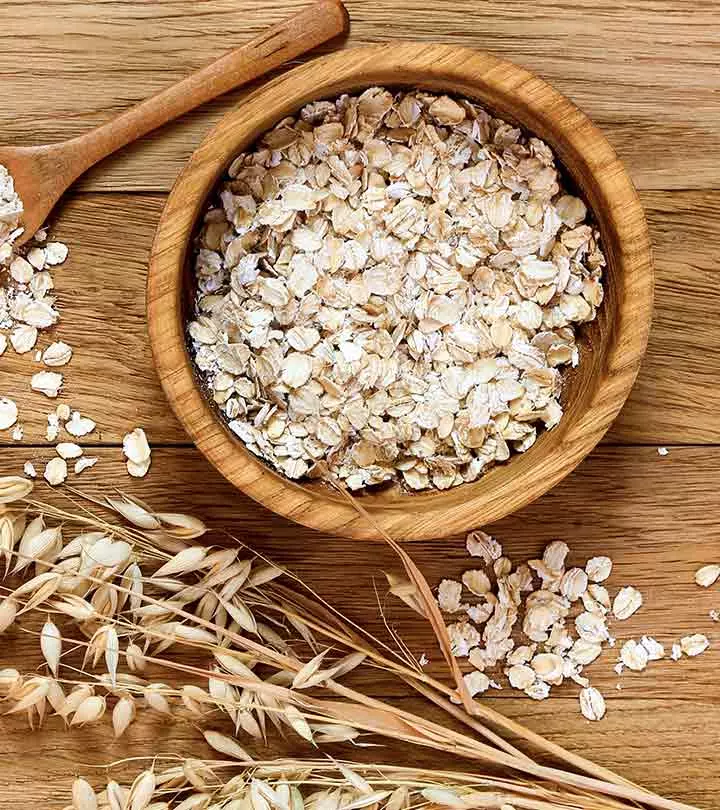
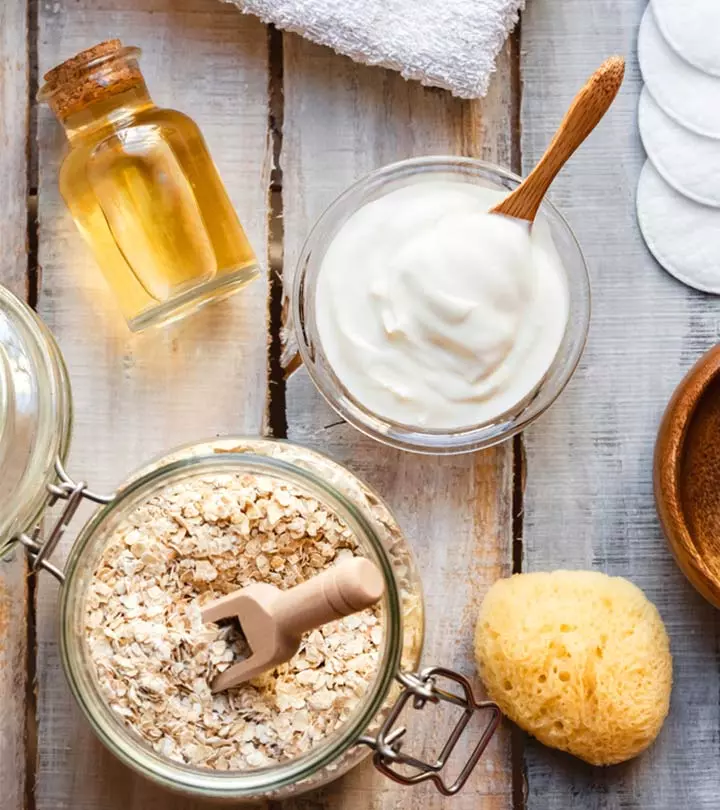
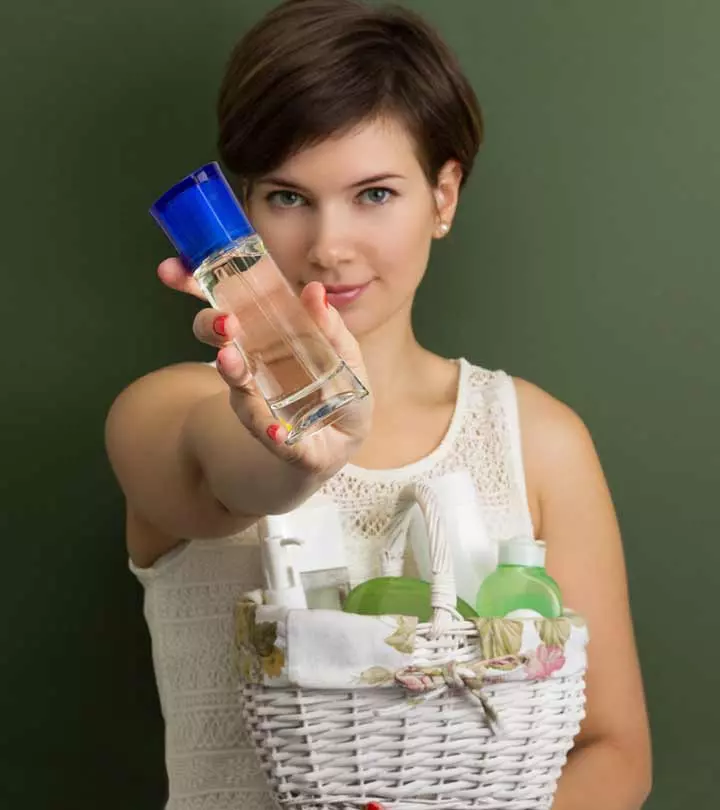



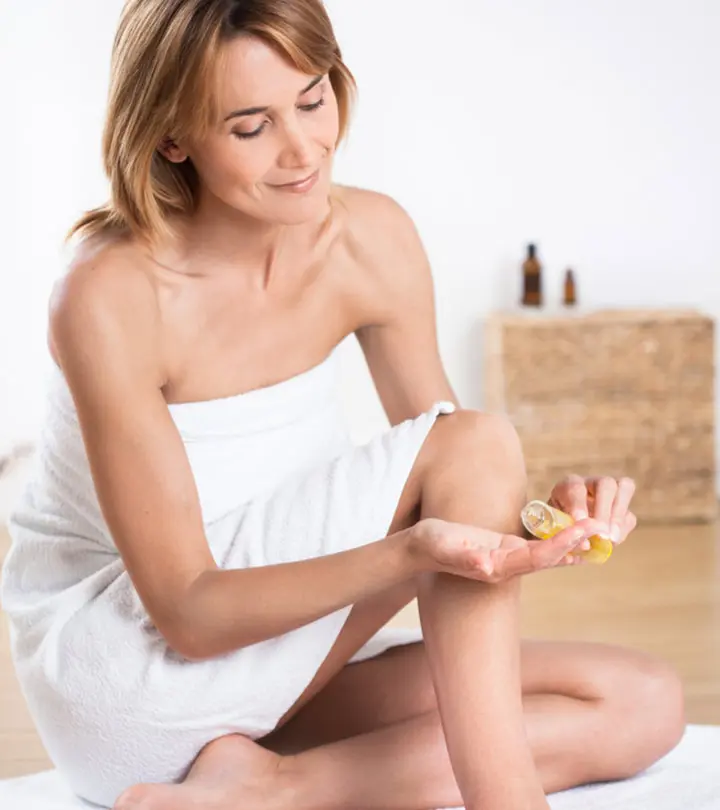

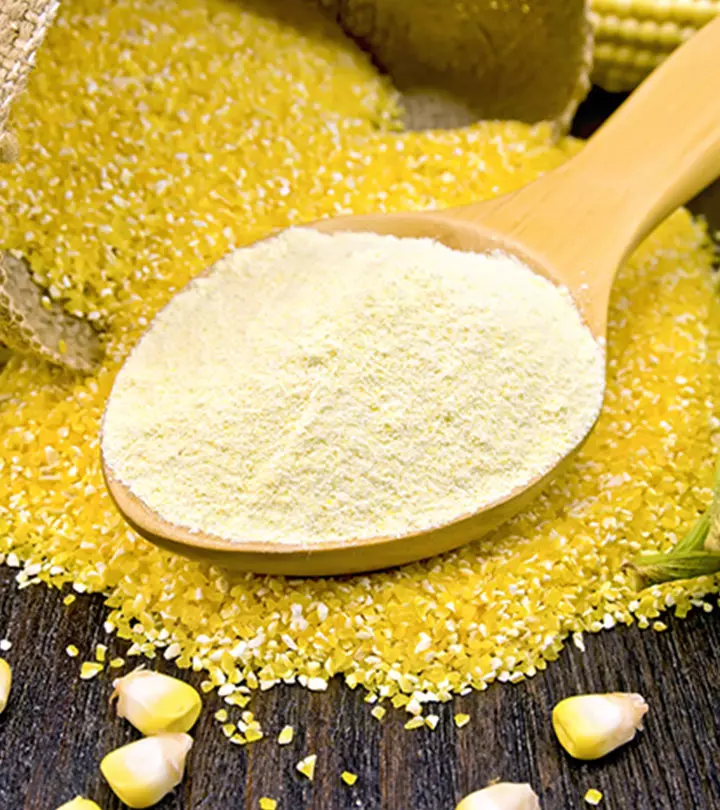

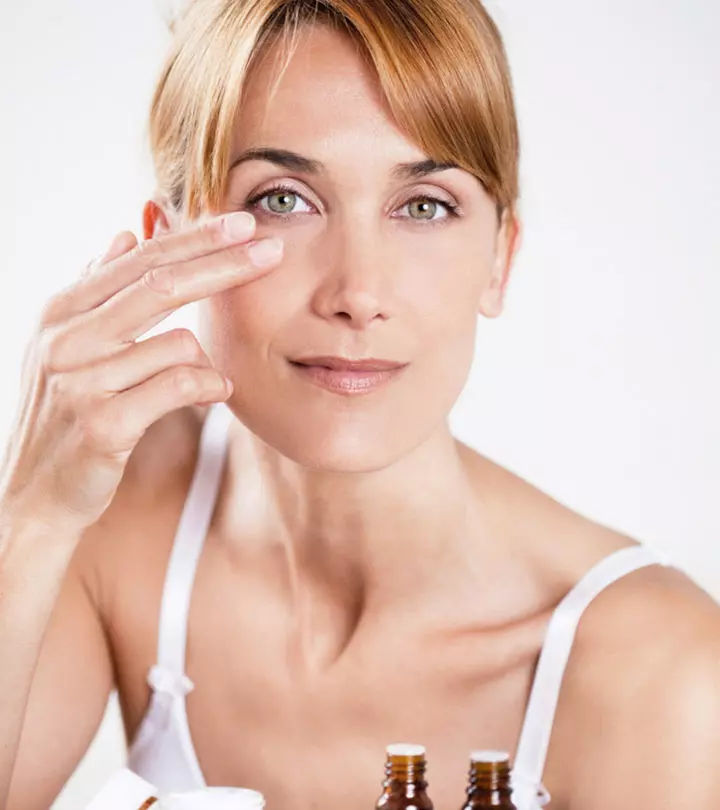


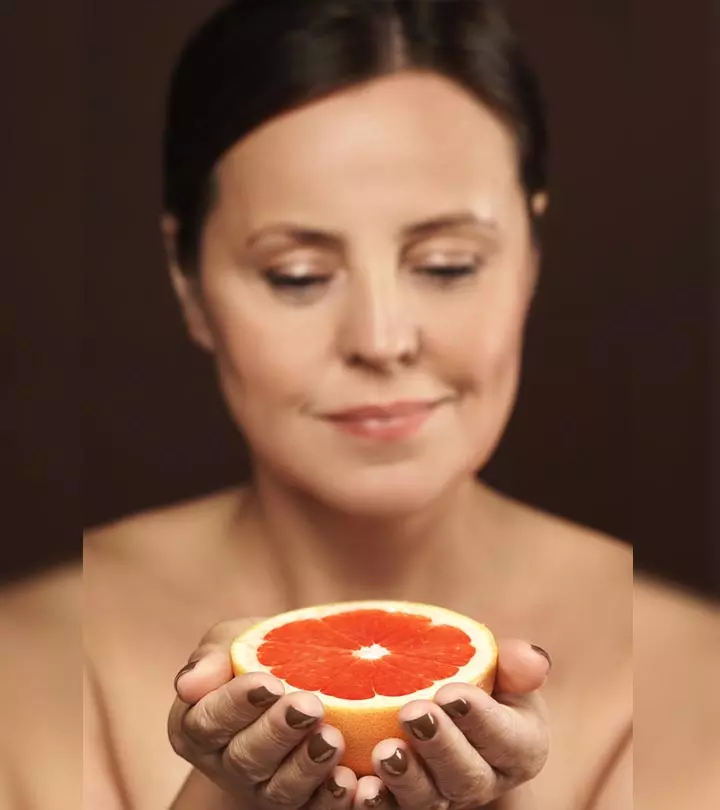

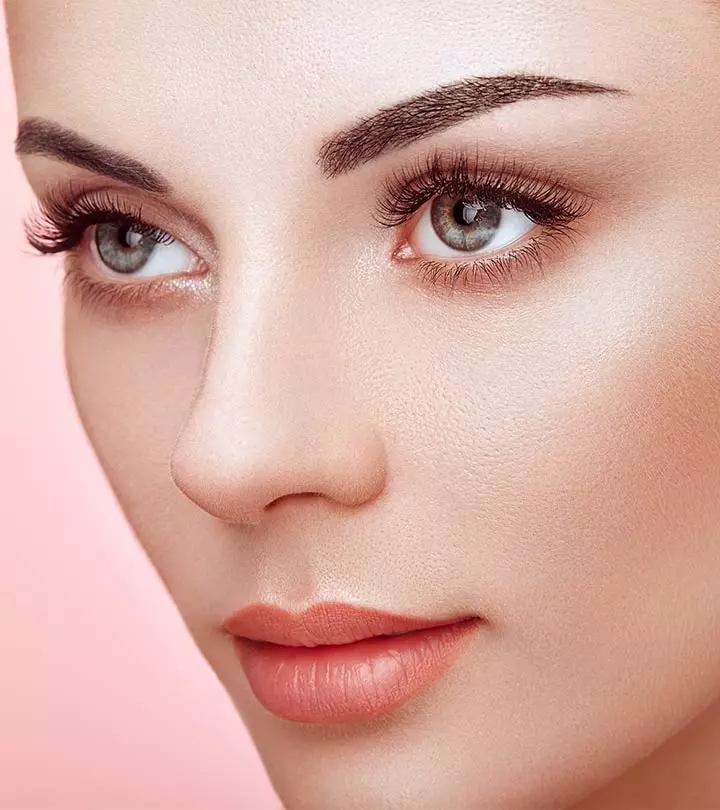
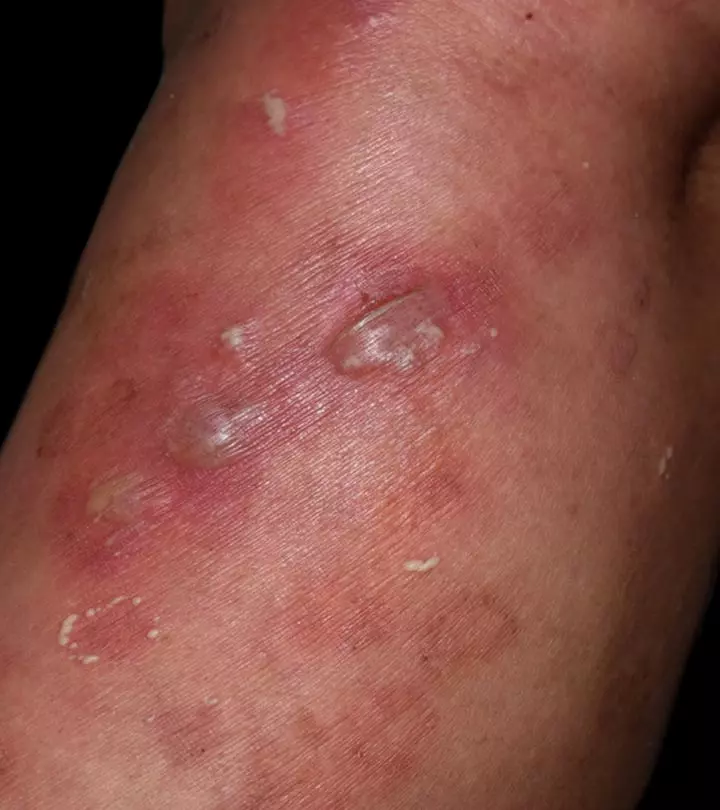
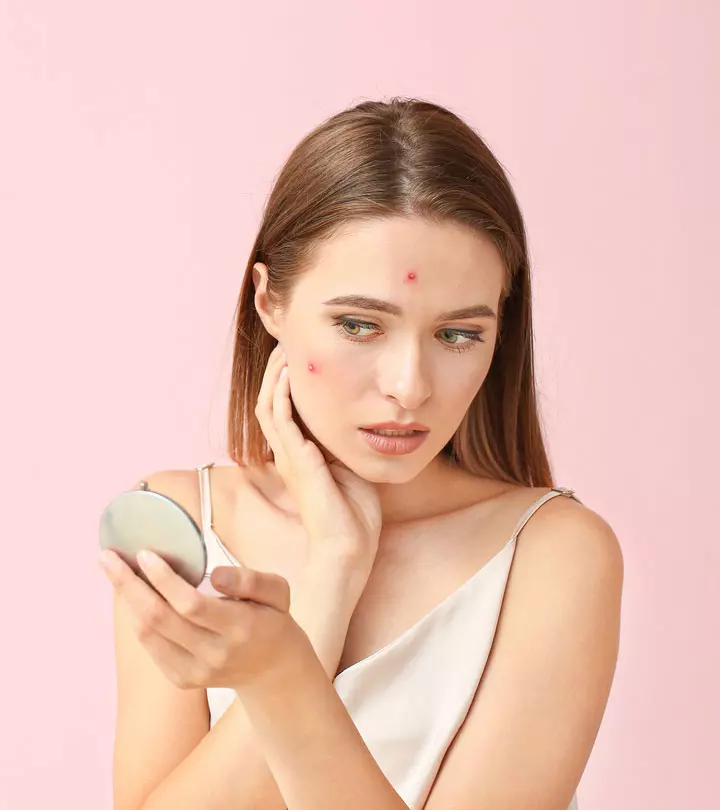

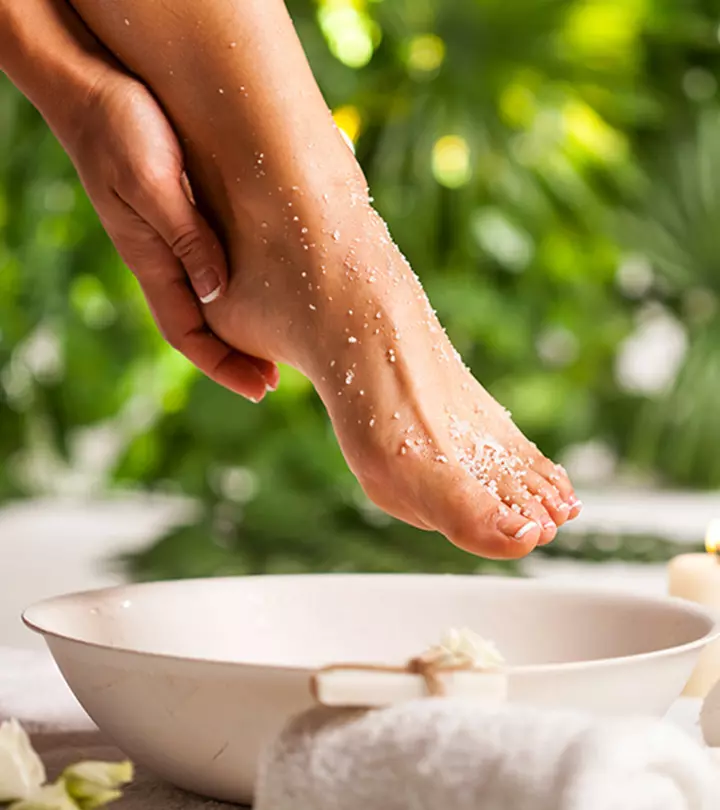
Community Experiences
Join the conversation and become a part of our empowering community! Share your stories, experiences, and insights to connect with other beauty, lifestyle, and health enthusiasts.